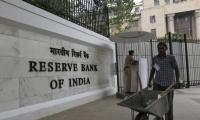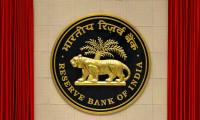NFIR Bill Ready for July Session: DEA Secretary
India's Economic Affairs Secretary announces the near-completion of the NFIR Bill, aiming for its introduction in July's parliamentary session. The registry will provide a central repository of financial information, boosting credit flow and financial inclusion.

Illustration: Dominic Xavier/Rediff.com
New Delhi, Feb 4 (PTI) Economic Affairs Secretary Ajay Seth has said that a draft Bill for setting up a National Financial Information Registry (NFIR) is almost ready and it may be introduced in the July session.
The objective is to build a public infrastructure for credit-related information and the right information can be made available by the NFIR to lending agencies.
A National Financial Information Registry will serve as the central repository of financial and ancillary information. This will facilitate efficient flow of credit, promote financial inclusion, and foster financial stability.
"Stakeholder consultations on the draft bill are over now and it is almost ready. We will shortly take it to the Cabinet for its approval but introduction in this session will not be possible," Seth told PTI in an interview.
However, he said, the Bill may be introduced in the July session.
The July session would be the first session of the 18th Lok Sabha after the general elections in the next couple of months. During the session, the full Budget for FY25 will be presented.
Talking about the benefits of large outlay on capital expenditure, Seth said, it has a multiplier effect on the economy, attracts private investment and generates jobs for factory workers, skilled, semi-skilled and unskilled persons.
The government in the Interim Budget 2024-25 has hiked capital expenditure (capex) by 11.1 per cent to Rs 11.11 lakh crore for the next financial year from Rs 9.5 lakh crore estimated for the current financial year.
Infra-spending has a multiplier effect on the economy. This means that not only does the project contribute immediately through increased demand for labour and construction materials but also through the second-order effects in terms of improved connectivity.
Various studies have estimated the multiplier to be between 2.5-and 3.5 times. So for every rupee spent by the government in creating infrastructure, GDP gains are worth Rs 2.5-3.5.
According to NITI Aayog, in times of economic contraction, this multiplier is larger than the one during economic expansion. This implies that public investment, if timed and targeted right, can actually 'crowd-in' private investment rather than 'crowd-out' such funds.
The objective is to build a public infrastructure for credit-related information and the right information can be made available by the NFIR to lending agencies.
A National Financial Information Registry will serve as the central repository of financial and ancillary information. This will facilitate efficient flow of credit, promote financial inclusion, and foster financial stability.
"Stakeholder consultations on the draft bill are over now and it is almost ready. We will shortly take it to the Cabinet for its approval but introduction in this session will not be possible," Seth told PTI in an interview.
However, he said, the Bill may be introduced in the July session.
The July session would be the first session of the 18th Lok Sabha after the general elections in the next couple of months. During the session, the full Budget for FY25 will be presented.
Talking about the benefits of large outlay on capital expenditure, Seth said, it has a multiplier effect on the economy, attracts private investment and generates jobs for factory workers, skilled, semi-skilled and unskilled persons.
The government in the Interim Budget 2024-25 has hiked capital expenditure (capex) by 11.1 per cent to Rs 11.11 lakh crore for the next financial year from Rs 9.5 lakh crore estimated for the current financial year.
Infra-spending has a multiplier effect on the economy. This means that not only does the project contribute immediately through increased demand for labour and construction materials but also through the second-order effects in terms of improved connectivity.
Various studies have estimated the multiplier to be between 2.5-and 3.5 times. So for every rupee spent by the government in creating infrastructure, GDP gains are worth Rs 2.5-3.5.
According to NITI Aayog, in times of economic contraction, this multiplier is larger than the one during economic expansion. This implies that public investment, if timed and targeted right, can actually 'crowd-in' private investment rather than 'crowd-out' such funds.
You May Like To Read
TODAY'S MOST TRADED COMPANIES
- Company Name
- Price
- Volume
- Vodafone Idea L
- 8.10 (+ 18.94)
- 352105814
- GTL Infrastructure
- 1.50 (+ 7.14)
- 20982285
- G G Engineering
- 0.90 (+ 11.11)
- 20091512
- AvanceTechnologies
- 0.54 ( -8.47)
- 18780688
- YES Bank Ltd.
- 17.33 (+ 2.61)
- 14468025






 © 2025 Rediff.com India Limited. All rights reserved.
© 2025 Rediff.com India Limited. All rights reserved.